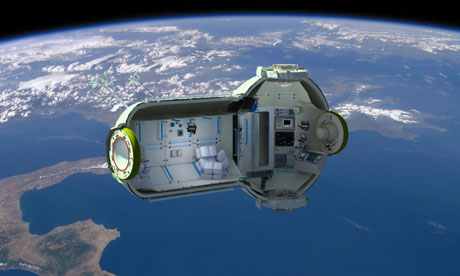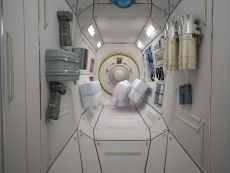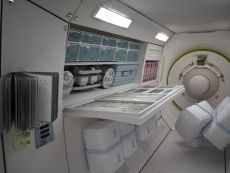- Joined
- Sep 14, 2012
- Messages
- 10,032
- Reaction score
- 4,966
- Gender
- Male
- Political Leaning
- Independent
Hello.
I am a pretty big supporter of space exploration myself.
When I was young, my grandfather told me that during the 1960's, the mayor of town he lived in was the only one who had a television that could get foreign programs somehow. This was during the communist era see. Anyway, when the Apollo space mission flew, a lot of people from the town gathered in the room to watch the broadcast on the TV. He said that there were like 60 people crammed in the living room and the hall, all standing close to one another, in immense heat because of all the people and it was summertime, and about 100 more outside the house, listening through the window. Everybody was quiet, listening and following it all carefully.
And the best part was that after the broadcast, when he went home, he felt like he was himself on the Moon. Going sooo slow and with big steps with a lot of distance between them, like he couldn't walk right.
Now, you imagine that I can't relay the whole thing to you with the same amount of excitement for obvious reasons but I'm quite certain that if you're old enough or if you're younger, and talk to older folks who have been there as it were, you might hear the same excitement from them on this topic. Or you might not, I dunno.
Anyway. I want that. Not the whole 60 people in a room thing, but I want that feeling of thrill and excitement, that something monumental is about to happen. I mean, nobody really cares that much about unmanned space missions. There is no thrill there. There is ofc, the scientific aspect and engagement of it, but that's for specialists mostly. To get other people involved with this and supportive of this on a massive scale, you need to have men up there, on the surface of a planet. To put a footprint, not a tire track, on the surface of something else. Somewhere where most of us will never set foot on during our lifetime. Something that will make the rest of us buy fancy space outfists and I don't know, read more SF and want to have spacesuit costume parties and whatever. I don't know. But I want that.
But enough about me and this.
This poll is made to assess, at least in this microcosm of DP, what is the general support for space programs.
There are 4 big space agencies in the world atm.
NASA - everybody heard of it.
ESA - European space agency. If you're an European, you know of it.
Rocosmos - Russian space agency
And the chinese one.
Now sadly, there are just 10 poll spaces... so take yer pick.
Also, for those who are confused. ESA is not an EU project. There are countries outside of the EU (switzerland and Norway) who are part of the space program for quite some time now and contribute to the budget. But it is true that the EU also provides now, the largest share of the budget to ESA, but it has no authority over it. And hopefully, never will. And European here means that you are part of an European country, regardless of whether it is in the EU or not, or whether it is a part of ESA or not.
If you vote for I'm X and I consider Y a priority, it means you would like to see more funding put in place for it by the authorities and also, get more out of it. But you don't automatically want more cooperation, but rather, see it as a stand-alone enterprise.
If you vote for coop, it just means that, you are happy with how things are now for the space agencies but would like to see more cooperation between them. Pool resources as it were and share the results.
If you don't care then you have no soul.
I am a pretty big supporter of space exploration myself.
When I was young, my grandfather told me that during the 1960's, the mayor of town he lived in was the only one who had a television that could get foreign programs somehow. This was during the communist era see. Anyway, when the Apollo space mission flew, a lot of people from the town gathered in the room to watch the broadcast on the TV. He said that there were like 60 people crammed in the living room and the hall, all standing close to one another, in immense heat because of all the people and it was summertime, and about 100 more outside the house, listening through the window. Everybody was quiet, listening and following it all carefully.
And the best part was that after the broadcast, when he went home, he felt like he was himself on the Moon. Going sooo slow and with big steps with a lot of distance between them, like he couldn't walk right.
Now, you imagine that I can't relay the whole thing to you with the same amount of excitement for obvious reasons but I'm quite certain that if you're old enough or if you're younger, and talk to older folks who have been there as it were, you might hear the same excitement from them on this topic. Or you might not, I dunno.
Anyway. I want that. Not the whole 60 people in a room thing, but I want that feeling of thrill and excitement, that something monumental is about to happen. I mean, nobody really cares that much about unmanned space missions. There is no thrill there. There is ofc, the scientific aspect and engagement of it, but that's for specialists mostly. To get other people involved with this and supportive of this on a massive scale, you need to have men up there, on the surface of a planet. To put a footprint, not a tire track, on the surface of something else. Somewhere where most of us will never set foot on during our lifetime. Something that will make the rest of us buy fancy space outfists and I don't know, read more SF and want to have spacesuit costume parties and whatever. I don't know. But I want that.
But enough about me and this.
This poll is made to assess, at least in this microcosm of DP, what is the general support for space programs.
There are 4 big space agencies in the world atm.
NASA - everybody heard of it.
ESA - European space agency. If you're an European, you know of it.
Rocosmos - Russian space agency
And the chinese one.
Now sadly, there are just 10 poll spaces... so take yer pick.
Also, for those who are confused. ESA is not an EU project. There are countries outside of the EU (switzerland and Norway) who are part of the space program for quite some time now and contribute to the budget. But it is true that the EU also provides now, the largest share of the budget to ESA, but it has no authority over it. And hopefully, never will. And European here means that you are part of an European country, regardless of whether it is in the EU or not, or whether it is a part of ESA or not.
If you vote for I'm X and I consider Y a priority, it means you would like to see more funding put in place for it by the authorities and also, get more out of it. But you don't automatically want more cooperation, but rather, see it as a stand-alone enterprise.
If you vote for coop, it just means that, you are happy with how things are now for the space agencies but would like to see more cooperation between them. Pool resources as it were and share the results.
If you don't care then you have no soul.
Last edited:








